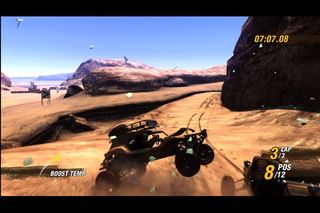Pre-E3 06: Medieval II: Total War impressions
PC: Swords and shields strategy wargame gives new meaning to the word "scale"
The Total War games have always been high on the list for strategy gamers due to their solid mix of strategic conquest, tactical combat, and staggering vastness. Literally hundreds of units can appear onscreen at once, each determined to run its sword or spear through someone else out there. Although the latest installment returns to an already visited era, the advances in gameplay and technology make it a trip that we're eagerly anticipating.
Visual upgrades shine on the field of battle, with an extreme level of detail in all the units. Rather than settle for a mass of identical warriors, the developers have created a number of small variations on the uniforms to give the illusion of a group of individual people. Environments have also been upgraded, with extremely realistic looking terrain that also demands tactical consideration. For example, heavy mud will slow down an army.
Unit types are also graced with special maneuvers that can be invaluable during battle. During the demo, we saw a group of archers plant large stakes in the ground at an angle to stave off a cavalry charge. Apparently, calvary would prefer not to find themselves thrown over the front of their now-skewered mounts. Each unique move is designed to counter a specific attack, so wily players can change the course of battle via key tactical decisions.

The glory of battle and bloodlust aside, one of the biggest advancements takes place away from the battlefield. In the prior games, diplomacy was rather basic and your adversaries never really drove a hard bargain. Now, they have memories and will remember if you treated them with respect the last time you had dealings, of if you tried to take advantage of them. As a result, trade deals take on a bit more importance.
Cities can now be specialized, with either a military or an economic focus. Cities with a military focus have fortified walls and can train new recruits faster, while economic hubs have the benefit of improving trade and increasing revenues for your empire. Choosing the proper balance will be tricky, as having a bunch of military bases won't do you much good if you're not earning any money.
You can also wield economic power as a weapon through careful use of your merchant units. Lay claim to natural resources to deny them to your opponents or eliminate your enemy's merchants to harm his trading power. Of course, if money won't do it there is always religion. Priests can be used to influence the opposing masses and get them to rebel. But be warned: the holy men can also turn against you if you're not careful, inciting a religious war.
Every game in the Total War series has been a solid improvement on the one before, and the trend shows no sign of stopping with Medieval II. If you've ever watched Braveheart or (you poor bastard) Troy and thought you'd like a piece of that battle, here's your chance.
May 9, 2006
Sign up to the 12DOVE Newsletter
Weekly digests, tales from the communities you love, and more
PlayStation icon Shuhei Yoshida says a normal publisher would've canceled The Last Guardian, but even when it was running at 10-15 FPS on PS3 he insisted "we have to release it"
27 years later, Resident Evil 2 speedrunners get the "single most needed" quality of life mod, and the fastest world records are already being cut in half

Meet the worst Transformer ever, a Decepticon named Ballpoint who turns into a normal sized ballpoint pen
Most Popular

